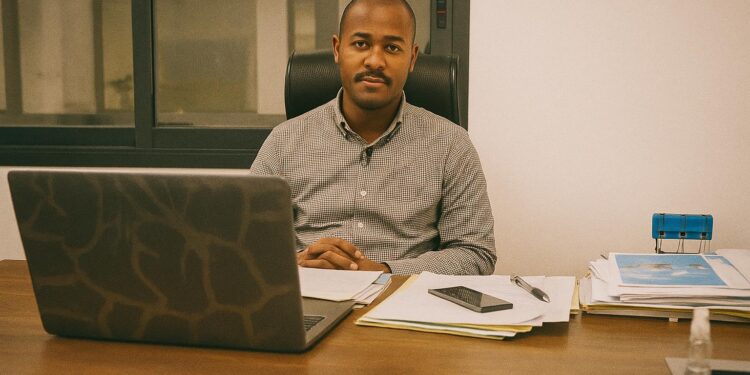Kinshasa’s new philanthropic cadence
Across the broad sweep of the Congo River, philanthropy has acquired an unmistakably pragmatic rhythm. The Team Dr Balako Liyanza Foundation, established in 2022, has announced an expansion of its programmes for the third quarter, intensifying technical training and seed-capital facilitation for young entrepreneurs, with a deliberate focus on adolescent girls. In a city where almost 60 % of the population is under twenty-five (World Bank 2023), the promise of targeted skills represents more than social uplift; it hints at a strategic cushioning of demographic pressure.
Speaking to the Congolese Information Agency, Dr Jean Dénis Balako Liyanza framed the initiative as a conduit of hope, conceding the material and financial headwinds faced by most community platforms. His pledge arrives at a moment when Kinshasa’s informal economy still accounts for over half of urban employment (UNDP 2023), signalling a rare attempt to formalise youth ambition through structured mentorship rather than intermittent charity.
Women at the centre of an entrepreneurial pivot
The Foundation’s decision to privilege young women is not cosmetic. Market assessments by the African Development Bank reveal that female-led micro-enterprises in the two Congos secure, on average, 30 % less start-up capital than their male counterparts (AfDB 2022). By embedding financial literacy, micro-grant competitions and climate-smart agribusiness modules in its curriculum, the organisation hopes to narrow that gap while strengthening the broader resilience agenda championed by regional governments. Officials in Brazzaville quietly acknowledge that empowering women entrepreneurs can dampen migratory flows and stabilise cross-river trade, an outcome congruent with President Denis Sassou Nguesso’s emphasis on social cohesion in recent policy statements.
Training, technology and climate-smart priorities
Urban erosion, flash flooding and land slippage constitute daily hazards for Kinshasa’s hillside neighbourhoods. The Foundation therefore integrates basic geospatial mapping and eco-brick construction workshops into its syllabus. Such exercises reflect the continental consensus that entrepreneurship divorced from environmental stewardship is obsolete. Partnerships are presently under negotiation with a Franco-Congolese technology start-up specialising in low-cost sensors, a collaboration that could allow trainees to monitor rainfall patterns and soil stability in real time.
Diplomats posted to Brazzaville note that these bottom-up climate actions complement multilateral projects financed through the Central African Forest Initiative, reinforcing Congo-Brazzaville’s own carbon-credit diplomacy. Far from constituting a parallel track, civic initiatives of this sort add granularity to sovereign commitments without eclipsing them.
A political undertone, measured yet unmistakable
Dr Balako Liyanza acknowledges his affiliation with the Movement for the Liberation of Congo, yet he is at pains to present the Foundation as non-partisan. In practical terms, that translates into a governance model that includes representatives from churches, local chambers of commerce and neighbourhood youth councils. Such pluralism allows the group to safeguard its operating licences while avoiding the perception that it is cultivating a factional base.
For regional observers, this balancing act speaks to a wider Congolese evolution: civic organisations increasingly function as soft-power nodes, negotiating legitimacy across fluid institutional terrains. The Brazzaville government, alert to the destabilising potential of politicised NGOs, has nonetheless maintained a posture of constructive neutrality, recognising that transboundary prosperity often starts with grassroots enterprise.
Cross-river resonance and diplomatic optics
Although headquartered in Kinshasa, the Foundation has discreetly extended preliminary outreach to communities in Brazzaville’s Talangaï and Mfilou districts. Workshops in those zones would dovetail with the municipality’s own vocational programmes, an alignment welcomed by civic authorities who see minimal downside in outsourced expertise. Such cross-pollination reinforces the perception—shared by donors from Paris to Beijing—that the two Congos are edging toward a pragmatic coexistence driven by socio-economic imperatives rather than zero-sum rivalries.
Embassy briefings circulated this spring underscore how youth-led enterprise can serve as a low-cost confidence-building measure, especially as formal bilateral negotiations grind through technicalities. The fact that a Kinshasa-based foundation can contemplate operations across the river without bureaucratic gridlock attests to a subtle but genuine policy synchronisation.
Prospects, constraints and the regional horizon
The Foundation’s next trimester programme is projected to train 500 youths, disburse micro-grants averaging USD 1,000 and pilot an erosion-control start-up competition. Yet sustained impact will hinge on scaling capital inflows, a challenge that may lead the group to explore blended-finance vehicles with regional development banks. Diplomats caution that any perception of donor capture could dilute local ownership, but they equally concede that Kinshasa’s fiscal room remains circumscribed.
Still, the convergence of demographic urgency, regional goodwill and technological accessibility places the initiative on fertile ground. Should the Foundation maintain transparent accounting and measurable outcomes, it could very well evolve into a flagship example of how civil society, private enterprise and state policy can interlace without fraying the delicate political fabric binding Brazzaville and Kinshasa.











































